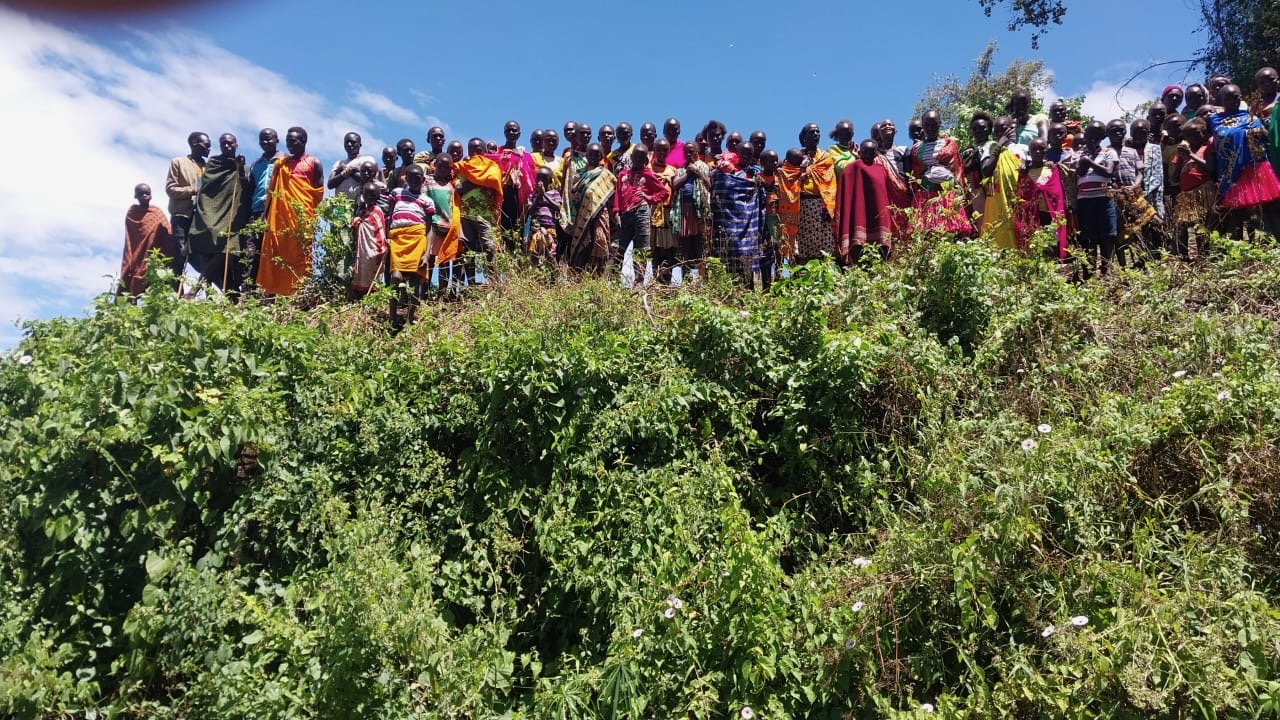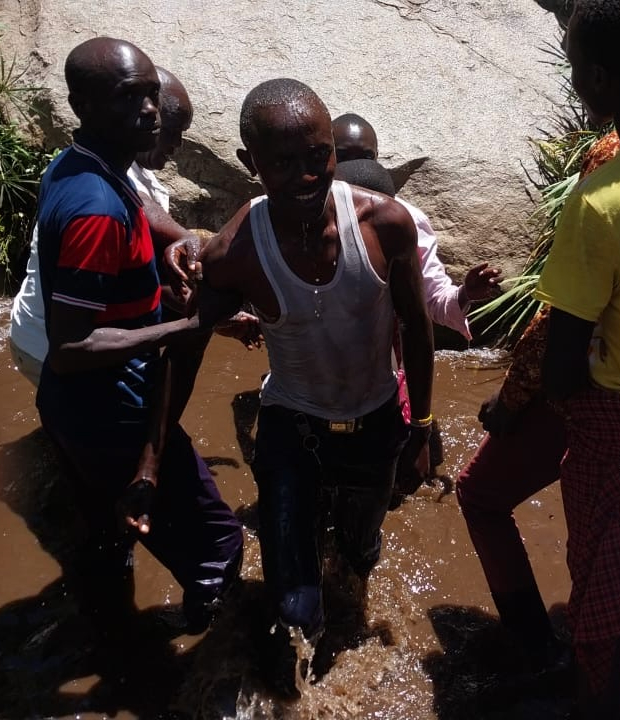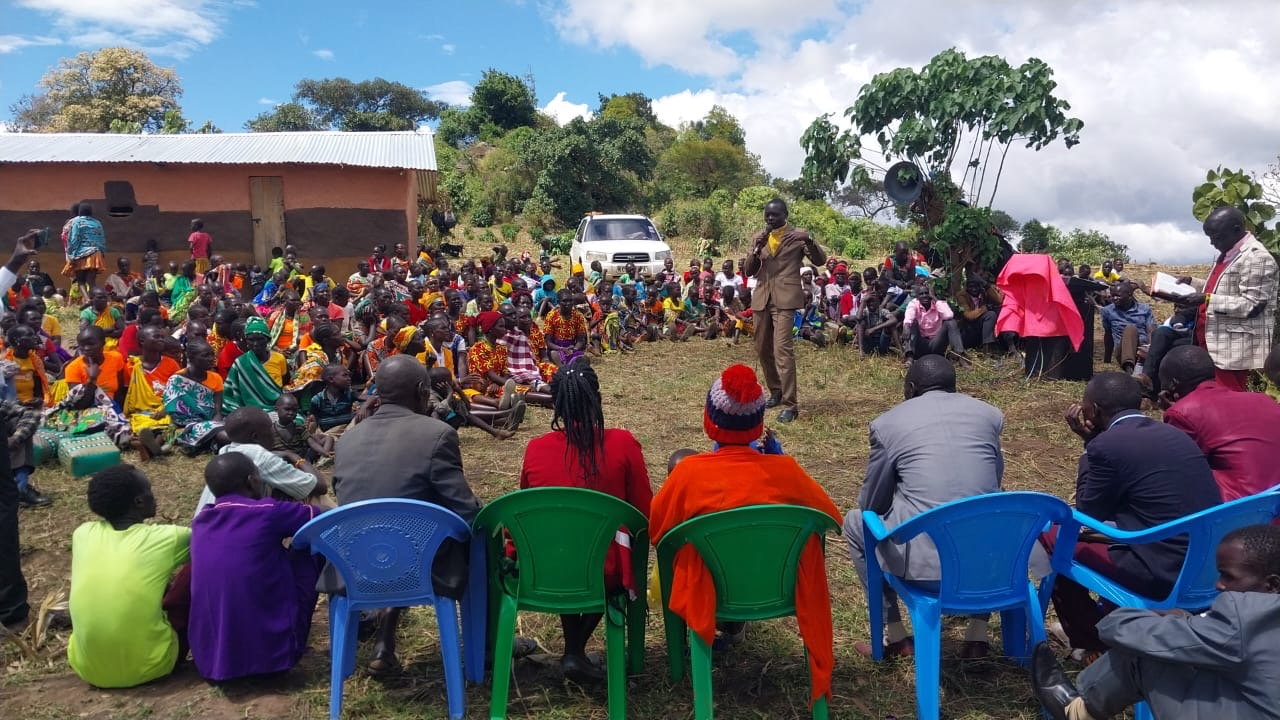I was born in a rural area of the northwestern part of Kenya inhabited by the pastoralist tribes known as Pokot.
Hostile cattle-rustling bandits from neighboring pastoralist tribes invaded my parents’ village, raiding all the livestock. This made my parents migrate from their ancestral and inherited land to a distant and safer location where they bought a piece of land and settled.
A deep dispute arose in our family, and I was driven out and settled at a nearby small town as a street boy. A year later, God sent his servant, a missionary, Rev. George Kendagor. I eventually was rescued and welcomed by the Kendagor family and invited to stay at their home. I encountered love through that family, and I encountered Jesus as my hope and Savior.
As I grew up, the government of Kenya came up with a peace approach that needed community participation. They formed peace committees from the grassroots level, and I was elected by my villagers to be among the committee.
Later, I was elected to the District Peace Committee that played an important role in developing peace policy. It also restored a hopeful relationship among pastoralist tribes and the government agencies that opened and paved the way for development in the villages.
Learning peacemaking
While working for peace, I met with Rev. Dr. Dan Buttry, a global peacemaker working for peace and justice at International Ministries—or the American Baptist Foreign Mission Society. In 2013, he invited me to participate in conflict transformation training.
In this training, I received a lot of resources on biblical principles of peace that motivated my commitment in peacemaking work. I was able to facilitate mediation effectively among five tribes fighting over natural resources along administrative borders of each tribe.

I also have established peace committees in the conflicted areas, and I have trained them with the skills I received from the conflict transformation training. The peace committees are using the skills to pursue peace in their context.
I have facilitated peace dialogues and trained peace committees in Uganda and Zimbabwe, as well.
Because the training material is based on biblical principles, peace committees suggested the training needed to be persistent due to the dynamic nature of conflict.
We started weekly discipleship sessions. I introduced the salvation message into the training tool, which led to some peace committee members professing faith in Jesus Christ. Also, churches started under trees in the villages.
Leading village churches

As many men were converted from banditry to Christ, the churches increased, along with the need to have spiritual leadership for them. By God’s grace, those reformed warriors not only became attending members of church fellowships, but they also became vessels of God—pastors of those churches in the villages.
God is using them to reach other youth who still are active in cattle rustling and causing instability among elderly, women, children, persons with disabilities and all God’s creation.
Pastors with theological education don’t like to preach in these village churches under trees. They demand payment, but the church members cannot raise funds to pay pastors due to poverty in the area caused by drought, climate change and conflict in the area. This leaves the churches without educated pastors.
Currently, there are 78 local Baptist churches still gathering under trees. There are no buildings, because the poverty in the area doesn’t allow them to purchase construction materials. So, most of time, the services may be interrupted by the weather.
Equipping pastors
As I continued to minister alongside my Baptist brethren, the pastors unanimously asked me to provide leadership, electing me as the moderator of the West Pokot Region of the Kenya Baptist Convention. The region has 110 local Baptist churches.

Among 110 Baptist pastors, I am the only pastor with a diploma in theological studies. The rest are not trained. Some are seeking non-formal education and struggle a lot to pay the fees. This calls for starting a Bible school nearby to train and equip the pastors.
Rev. Buttry has visited and worked with me in my village and understands the financial challenge to fund the peacemaking ministry in villages with a high percentage of poverty. He introduced me to International Ministries, and in 2019, I was accepted as an associate missionary.
My wife and I now have three daughters. It has been really challenging to fund their education, to feed our family and to respond to church needs, such as purchasing construction materials or land.
Despite being raised in a vulnerable life, Jesus Christ has been my hope. He is the reason I keep ministering in these churches despite the challenges. He keeps me strengthened and encourages me to continue serving him in regional leadership by equipping pastors and mobilizing churches to continue evangelism and discipleship.
Boaz Keibarak is married to Sophia and blessed with three daughters: Hiemiah, Anastacia and Jannele. He is the pastor of Genesis Rock Baptist Church in Bendera, Kapenguria, Kenya. The views expressed in this opinion article are those of the author.















We seek to connect God’s story and God’s people around the world. To learn more about God’s story, click here.
Send comments and feedback to Eric Black, our editor. For comments to be published, please specify “letter to the editor.” Maximum length for publication is 300 words.